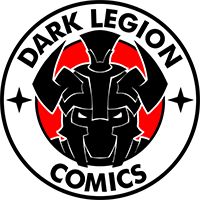Appendix N Heroes: Imric the Elf Earl

NOTE: I’m using the term “hero” pretty loosely in this case.
It was written in 1954, you can tell it was written in 1954 because it couldn’t be written today.
This is a work of high tragedy that is strongly influenced by the Norse sagas. If you like Game Thrones but would prefer that it be written by a non-sadist that can actually fit a story that should only take two hundred pages, into two hundred pages. This is the book for you.
It’s got pretty much everything. War, revenge, love, incest, magic, old gods, trolls, stepbrothers born to be enemies and elves.
This book is beautifully written. I can’t emphasize this enough. Poul Anderson was the product of a school system that actually had standards and felt it needed to educate its students. Stunning concepts, I know.
The work reads like a saga. We are first introduced to Orm the Strong who was a minor son of Ragnar Lothbrok (yes, he was indeed in the sagas) by one of his concubines. Orm went to one of his more successful brothers and asked for a few longships with the proviso that once outfitted he would make no more claims against the family. His brother saw the wisdom of this and sent Orm a-Viking. Orm settled in the Danelaw in Britain. Stole a holding, slaughtered the family that inhabited it but made the mistake of not slaying the family matriarch who was a witch. Big mistake there. Moving on. He acquired a wife by the usual trick of pretending to be a Christian. They were rather remotely located so when Orm’s wife gave birth to their firstborn son, there was a window of vulnerability created because it would take days for the priest to arrive before the child could be Christened.
An intriguing effect of Anderson’s writing was that I actually pronounced the word in my mind as Christ-ened.
Imric the Elf Earl now enters the picture. An unbaptized man-child is something quite useful to Imric.
As an Earl his behavior is in keeping with his station. There are rights and privileges that he keeps and upholds. When he comes upon The Witch, he demands without being demanding, food, and drink. Which she provides as that is his right as an Earl. Along with information about where he could find the unchristened son of her most hated enemy, Orm.
As an Elf, Imric immediately recons the situation finds the boy acceptable to his purposes, and proceeds back to his castle. He rapes an insane troll princess he keeps around for these occasions and using his magic they produce a Changeling, (apparently within less than an hour), which he immediately takes back and exchanges for Orm’s son, who will be named Vangard.
He fosters the boy and names him Skafloc. Raising him as an elf. Humans have certain advantages chief amongst them the ability to touch iron. The story then shifts to the tragic war between Skafloc and his changling stepbrother Vangard. And this is as far as I’m proceeding with the plot.
Imric was casually cruel. There was no sadistic passion to his cruelty it but more of a mischievous pleasure.
In other ways, Imric displays many noble traits. Courage, loyalty, dedication. He cares about his people, but his caring is more in the nature of being an artist caring for his creation.
This is very much a story of the West. Anderson himself was a reported agnostic but regardless of that, Christianity is treated very favorably in this story. I know that just makes it a product of its time but still, I’m not used to that in this day and age.
The fascinating thing for me is Anderson’s depiction of his elves.
Tolkien’s elves were intrinsically good if unearthly. They were the Golden People. While creations of God, they are like Man before his fall at Eden. They toiled not and lived lives of Unearthly beauty.
Anderson’s elves on the other hand are not nice at all. They are not creations of God. They have no souls and hence are fundamentally incapable of love or morality. They are the anti-Tolkien elf. However, this is very much in keeping with the old stories of faerie. This soullessness is a central theme of this book. All of the faerie are soulless. Both the elves and their enemies the trolls. And all of faerie blanches before the encroaching power of the White Christ whose church will drive them to oblivion.
“There was something about the eyes. It wasn’t the shape or the color. The was no evil glint. But there was…
… a look. It was such a look that a microbe might encounter if it could see up from the bottom end of the microscope. It said: You are nothing. It said: You are flawed, you have no value. It said: You are animal. It said: Perhaps you may be a pet, or perhaps you may be a quarry. It said: And the choice is not yours.”
– Terry Pratchett, Lords and Ladies

